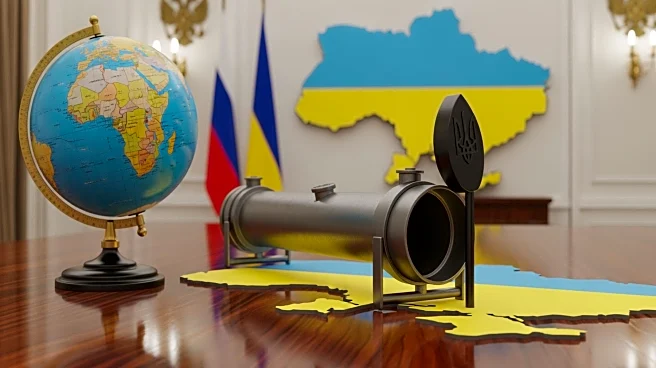What's Happening?
Hungarian Prime Minister Viktor Orbán is visiting President Trump in Washington with a large delegation to discuss key issues including Russian oil imports and the ongoing war in Ukraine. The visit highlights the strong bilateral relations between the U.S.
and Hungary, despite tensions over Hungary's continued import of Russian oil amidst U.S. sanctions. Orbán seeks an exemption from these sanctions, but President Trump has not indicated willingness to grant it. The meeting also aims to explore potential trade and defense deals, including increased purchases of liquified natural gas from the U.S. and cooperation on nuclear energy projects.
Why It's Important?
The meeting between President Trump and Prime Minister Orbán is significant as it underscores the geopolitical dynamics surrounding energy security and international relations. Hungary's reliance on Russian oil poses a challenge to U.S. sanctions aimed at pressuring Russia over its actions in Ukraine. The discussions could impact Hungary's energy policy and its relationship with the EU, especially regarding Ukraine's EU accession bid. The outcome of these talks may influence regional stability and economic strategies, with potential implications for U.S. foreign policy and energy markets.
What's Next?
The visit may lead to announcements of new energy and defense agreements between the U.S. and Hungary. Hungary might increase its LNG purchases from the U.S., aligning with EU energy security goals. Additionally, the U.S. could leverage its position to encourage Hungary to support Ukraine's EU membership bid, potentially easing regional tensions. The meeting could also result in symbolic victories for Orbán, strengthening his domestic political standing.
Beyond the Headlines
The closure of the Hungarian service of Radio Free Europe, announced during Orbán's visit, highlights the media landscape's role in shaping public perception and foreign policy. This move may affect Hungary's media freedom and its relationship with the U.S., reflecting broader trends in international diplomacy and media influence.















